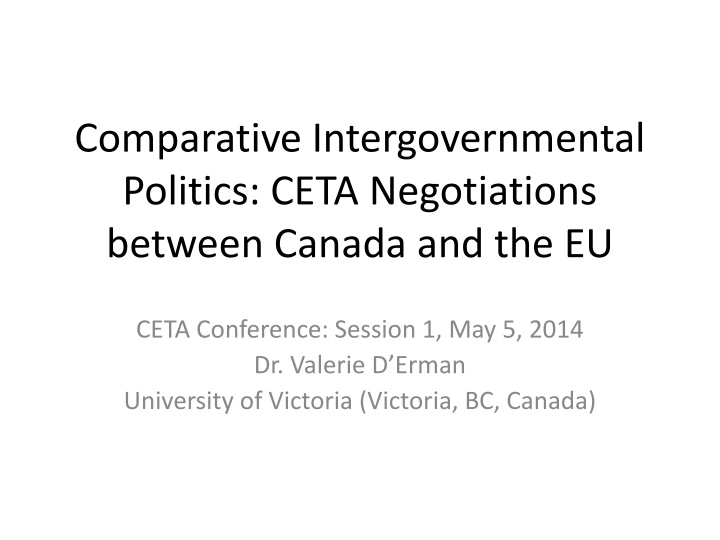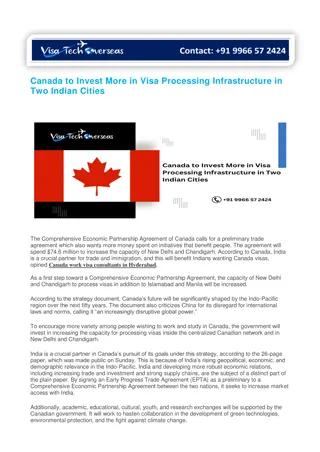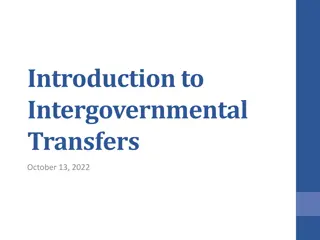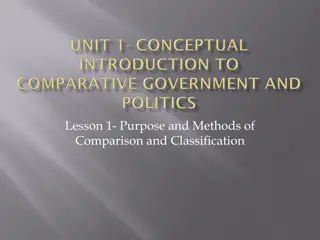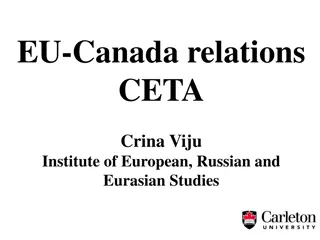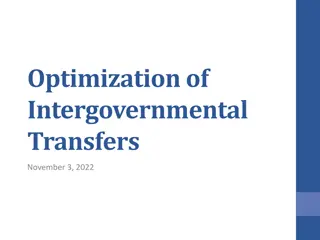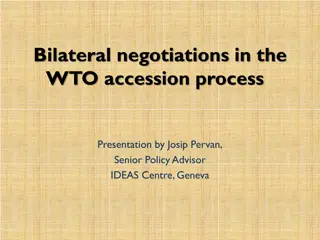Comparative Intergovernmental Politics: CETA Negotiations Between Canada and the EU
Canada and the EU as federal-like polities, the significance of CETA negotiations, challenges in involving sub-national governments, and the success of the EU in asserting norms of procedure.
Download Presentation

Please find below an Image/Link to download the presentation.
The content on the website is provided AS IS for your information and personal use only. It may not be sold, licensed, or shared on other websites without obtaining consent from the author.If you encounter any issues during the download, it is possible that the publisher has removed the file from their server.
You are allowed to download the files provided on this website for personal or commercial use, subject to the condition that they are used lawfully. All files are the property of their respective owners.
The content on the website is provided AS IS for your information and personal use only. It may not be sold, licensed, or shared on other websites without obtaining consent from the author.
E N D
Presentation Transcript
Comparative Intergovernmental Politics: CETA Negotiations between Canada and the EU CETA Conference: Session 1, May 5, 2014 Dr. Valerie D Erman University of Victoria (Victoria, BC, Canada)
Introduction and background Canada and EU prevalent examples of federal- like governance Early attempts at CETA stalled due to WTO talks and lack of provincial involvement Significant of this FTA agreement: Leverage helped EU assert norms of procedure Precedent for provincial pre-commitment International recognition of EU principle of subsidiarity
Negotiations New precedent in Canada for involvement of sub-national governments One-sided debate over liberalization of services and public procurement Sectoral protest within Canadian provinces Criticism over lack of transparency
Significance Success of EU in getting demands met and in exporting norms of procedure Possible precedent for EU-U.S. negotiations (TTIP)? Theoretical understandings of federalism Contrast between Canada and EU as federal-like polities Lack of nation-state or elected executive in EU Internal market coherence much stronger in EU, and resulting ability to negotiate
Conclusions PARADOX EU Single Market and federalism Visible and central goal of European integration Prior deregulation among member states already achieved through intergovernmental negotiation Treaty-based governance over constitutionalism Activist role of the ECJ EU intergovernmental-supranational relations as a successful model of federal governance rather than a federation with qualifiers
